At 14:00 on March 12, 2024, Professor Gao Feng from Linkoping University, Sweden was invited by Professor Huang Hui to give a lecture on "Minimizing voltage loss of organic Solar Cells" in the University of Chinese Academy of Sciences. The lecture was held in Room 214 on the first floor of the classroom.
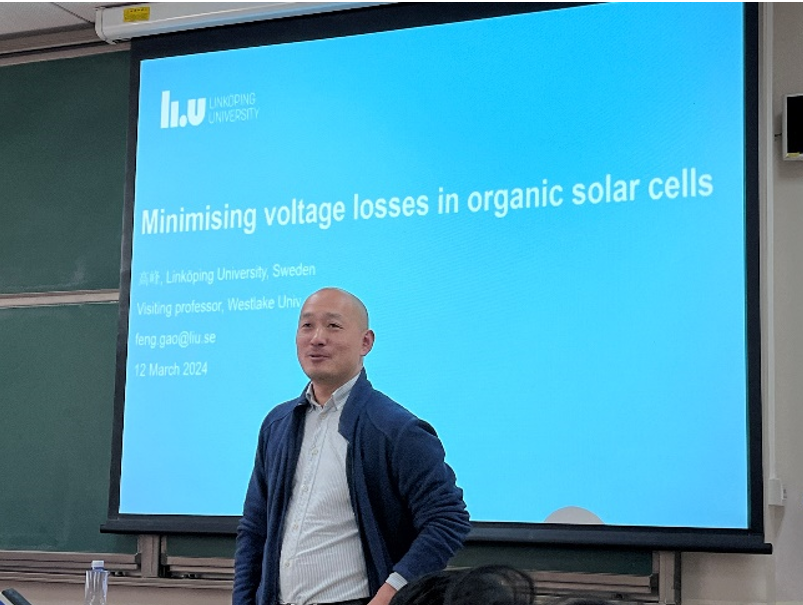
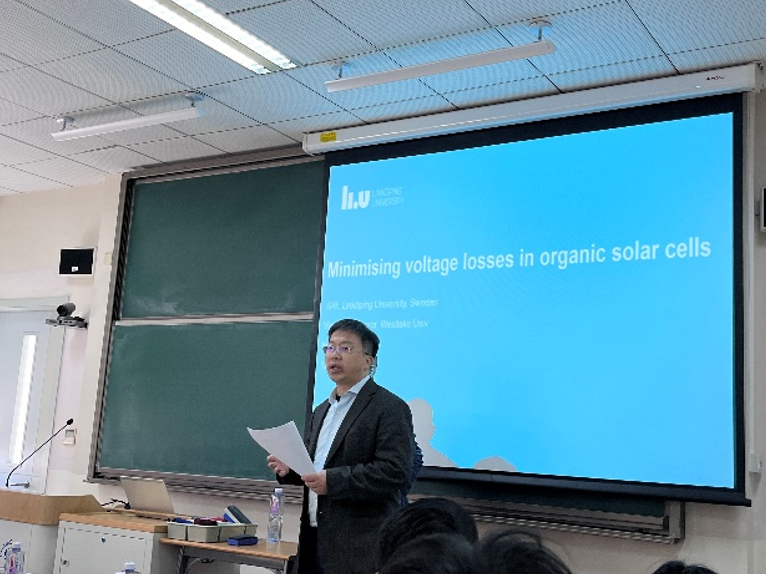
The power conversion efficiency of organic solar cells (OSCs) has now reached a high value of close to 20%. Recent advances in organic solar cells based on non-fullerene receptors (NFAs) reduce the voltage loss of non-radiation. In contrast to the energy gap law dependence observed in conventional "donor: Fullerene acceptor" blends, in the most advanced "Donor: non-fullerene acceptor" organic solar cells, the non-radiating voltage loss is not correlated with the energy of the charge transfer electronic states at the "donor: acceptor" interface.

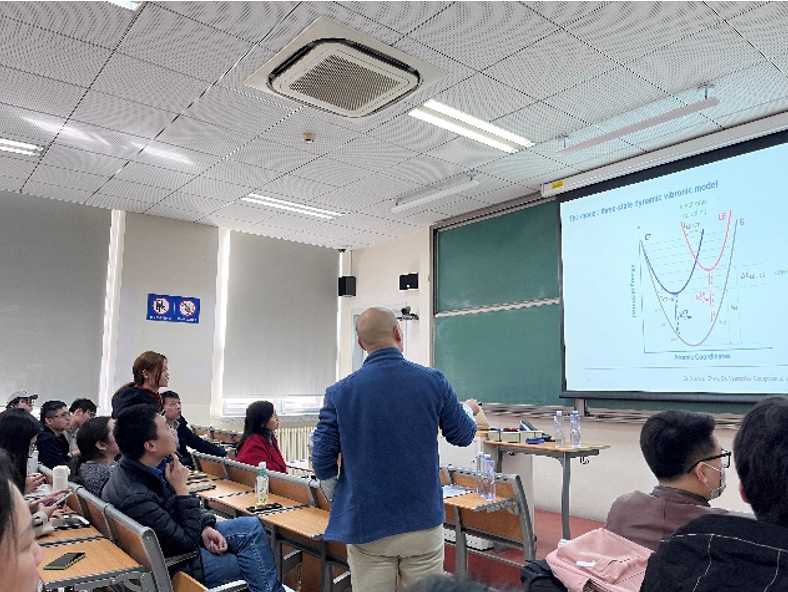
By combining temperature-dependent electroluminescence experiments and dynamic vibration simulations, Professor Gao's team provided a uniform description of non-radiative voltage losses in fullerene-based and non-fullerene-based devices. Second, the team emphasizes that the photoluminescence yield of the original material determines the lower limit of non-radiative voltage loss. The team also demonstrated that non-radiative voltage losses can be obtained without sacrificing charge generation efficiency (e.g. <0.2 V) reduction. The team further extended their understanding to ternary organic solar cells, providing reasonable material design rules for the third element of the efficient triplet. Professor Gao Feng conducted exchanges and discussions with the on-site teachers and students, and got a warm response from the on-site teachers and students.
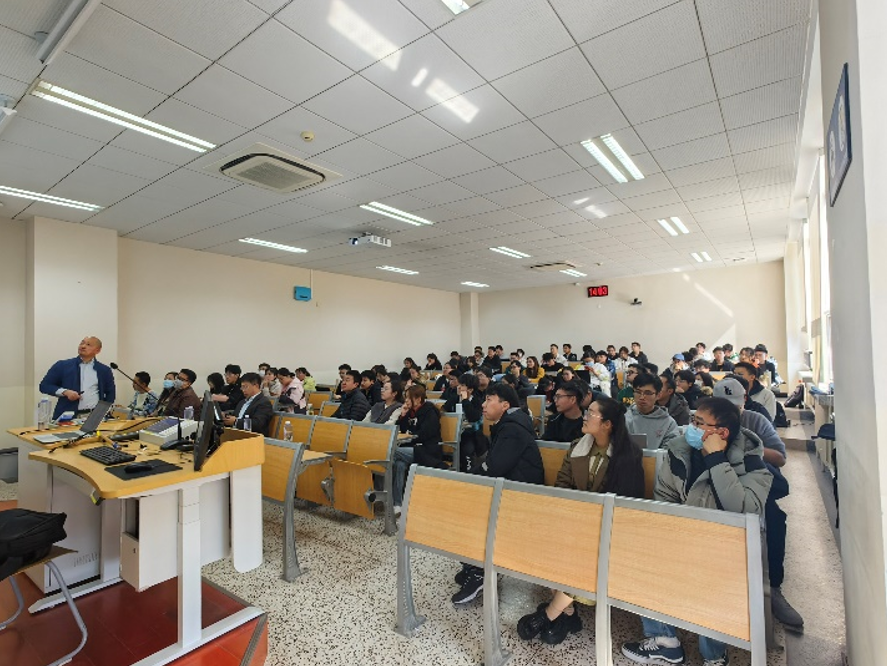
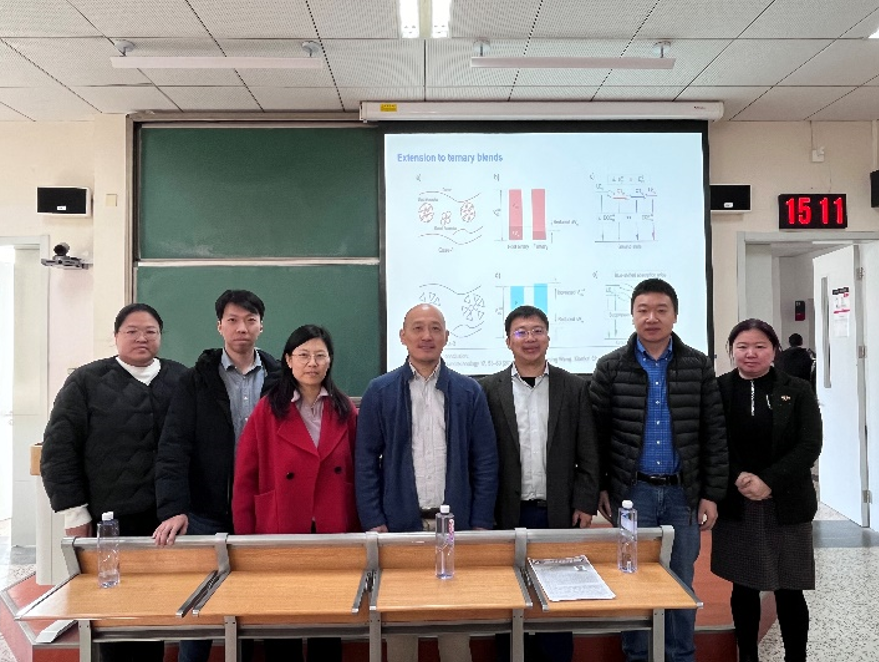
Gao Feng, Professor, Linkoping University, Sweden. He received his bachelor's and Master's degrees from the Department of Physics of Nanjing University in 2004 and 2007, and his doctorate degree from Cavendish Laboratory of Cambridge University in 2011. He then joined Linkoping University in Sweden as a Marie Curie Post-Doctoral Fellow (2013), Assistant Professor (2015), Associate Professor (2017) and Professor (2020). Currently visiting Westlake University. He is deputy editor of Science in China: Materials and deputy editor of FexMat. Professor Gao Feng's research interests are in solution-processable optoelectronic devices and their mechanisms, mainly based on organic and perovskite semiconductor materials. Related work has been published as corresponding author in Science, Nature, Nature Materials, Nature Photonics, NatureEnergy, Nature Electronics and other journals. Supported by a number of talent programs in Sweden and the European Union, including Future Research Leader of the Swedish Foundation for Strategic Research, Wallenberg Academy Fellow funded by the Wallenberg Foundation in Sweden, ERC Grants from the European Research Council (Starting Grant 2016, Consolidator Grant 2021). 2020-2025 As Chief Scientist to chair key frontier science projects of the Wallenberg Foundation in Sweden. In 2020, he was awarded the Tage Erlander Prize by the Royal Swedish Academy of Sciences for his research on the mechanisms of solar cells and light-emitting diodes.


